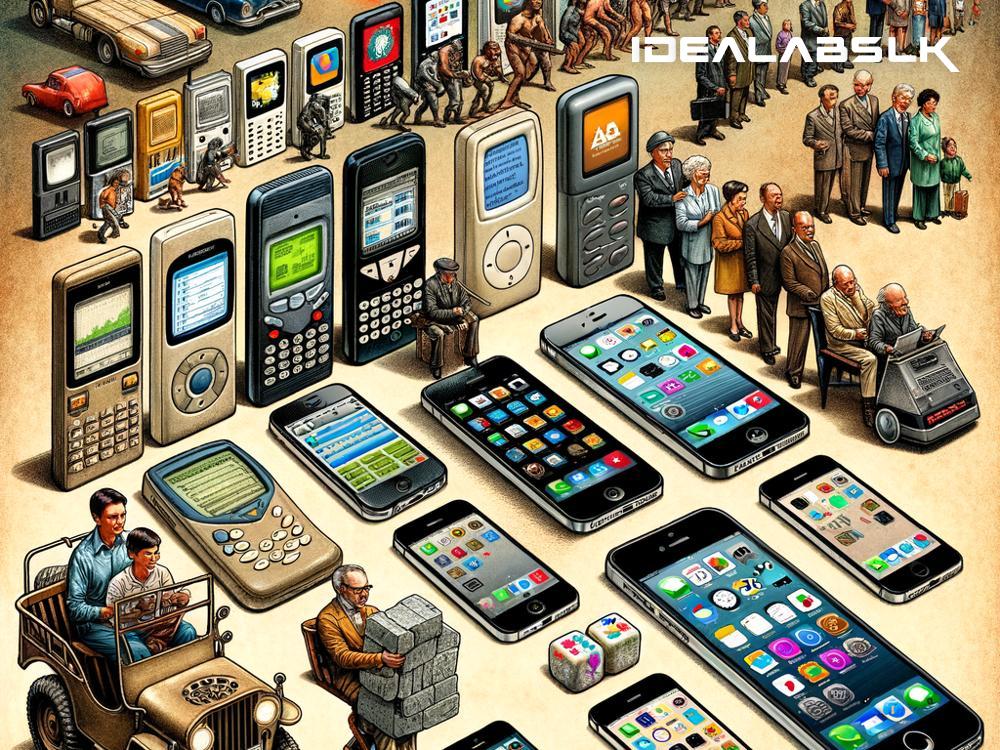The Beginnings of Mobile Apps and Their Initial Versions
In the world that buzzes right in our pockets, it's hard to remember a time when mobile apps weren't a part of our daily routine. They've become so ingrained in our lives that it's a bit of a surprise to realize they haven't always been around. So, where did they come from? And what were the first versions like? Let's dive into the origins of mobile apps and reminisce about their humble beginnings.
The Dawn of Mobile Apps
The story of mobile apps begins in the late 1990s, just as mobile phones started to evolve from bulky bricks to somewhat smarter devices. However, it wasn't until the launch of the first smartphones that the concept of mobile applications as we know them started to take shape. These weren't the high-powered devices we carry today, but they laid the groundwork for the app revolution.
The First Platforms
One of the earliest platforms that allowed apps was the Psion Organiser, launched in 1984. While not a smartphone, it was a handheld device that could run simple applications, mostly for productivity uses. Fast forward to 1994, and we meet the IBM Simon, recognized by many as the first smartphone. Besides making calls, it let users manage their contacts, calendar, and even send emails and faxes. Its app-like features were groundbreaking for the time.
However, the true ancestor of today's app stores was probably the "Palm Pilot" released in 1996, with a suite of built-in applications and the ability to install additional ones. This concept laid the groundwork for what was to come.
The App Stores Emerge
The Apple App Store, introduced in 2008, changed everything. It wasn't the first platform to offer downloadable apps — platforms like Palm OS, Symbian, and others existed before. However, Apple's execution, tied to a user-friendly interface and the burgeoning popularity of the iPhone, made the concept explode in popularity. Suddenly, developers had a direct line to a massive, eager audience, and the number of apps began to grow rapidly.
Shortly after, in 2008, Google launched the Android Market (now Google Play), providing a similar space for apps that would run on Android devices. The race was on, and the mobile app ecosystem we're familiar with started to take shape.
The First Apps: Simple Yet Revolutionary
Initially, the apps available were simple tools designed to enhance productivity or provide easy entertainment. Here are a few notable ones that paved the way:
-
Snake (1997): Preloaded on Nokia mobile phones, Snake is often fondly remembered as many users' first mobile game. It was simple, addictive, and showed the potential of mobile entertainment.
-
BlackBerry Messenger (BBM) (2005): Before WhatsApp or iMessage, there was BBM—a real-time messaging service exclusively for BlackBerry users. It was a big deal in its day, offering an early glimpse into the future of instant messaging.
-
Facebook for iPhone (2008): One of the apps that dramatically shaped how we interact with social media, the Facebook app, was an instant hit, bringing the vast social network into the palms of millions.
The Evolution and Impact
Since those early days, mobile apps have evolved with bewildering speed. They're not just for productivity or entertainment anymore. There's an app for almost everything—from monitoring your health, controlling your home appliances, to virtual reality games that transport you to another world. The early, simple utilities have given way to sophisticated tools that rely on artificial intelligence, augmented reality, and more.
The introduction of mobile apps has also created a vast economy, providing a livelihood for millions of app developers, marketers, and designers. Some apps have become so integral to our lives that it's difficult to imagine getting through the day without them. Services like Uber, Spotify, and Instagram have not just changed the industries they've entered; they've altered daily life.
Looking Back to Move Forward
Mobile apps have come a long way since the days of Snake on a Nokia phone or checking your email on a Palm Pilot. They've grown from curiosities and conveniences to essentials in our digital lives. Reflecting on their origins gives us an appreciation for the ingenuity and innovation that's brought us to where we are—and excitement for where we're going next.
As we look forward, it's clear that the journey of mobile apps is far from over. With advancements in technology opening new possibilities, the question isn't whether apps will continue to evolve, but rather how they'll shape our lives in the years to come. Considering where they started, the future is bound to be fascinating.

